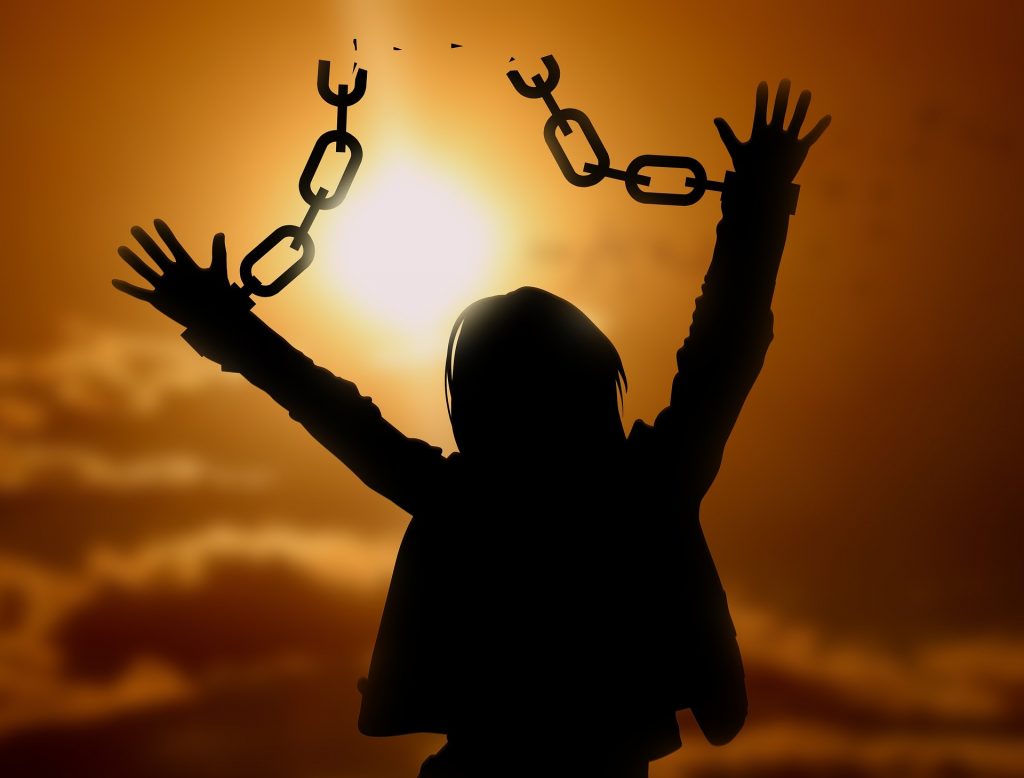
Today’s hymn from Sing Praise is Michael Forster’s “Cry Freedom in the name of God”. The tune written for it, called “Free indeed”, was not easy to sing just from the score, and I’ve not found a version of it online. I note that John used the better known tune ‘Battle hymn of the Republic’, but that sounded a bit too jolly to me for the words here, and I can’t hear it without thinking of the irreverent words sung at school camps many years ago!)
Interestingly though, a search for “cry freedom” mainly brought up references to a 1987 film set in South Africa’s times of apartheid, and it may have been that which inspired Forster to write this hymn, which is obviously influenced by liberation theology (the idea that God is necessarily with those who struggle against injustice).
The first verse sets the scene by referring to the freedom found in Jesus Christ, and that has to be what distinguishes a Christian response to injustice from the equally strong motivation of humanists to respond to the same issues for the sake of its victims. For the Christian, we are not only working for justice in human society but seeking to establish God’s will “on earth as in heaven”.
The second verse highlights two specific injustices that are found in the world today, and not only those in ‘underdeveloped’ countries: unfair responses to natural disasters in which the poor always come off worst (think India’s current Covid pandemic compared with the levels of vaccination in Europe); and the tendency to promote defence spending over relief for the poorest (as our own Government has just launched two vast aircraft carriers while cutting aid budgets).
The third verse focuses on the dictators who ‘hid behind their bodyguards and fear the open mind’. Imprisoned in their own mindset, and in constant fear of uprising or assassination, these men (as they nearly always are) may be vastly wealthy but do not have the peace of heart that comes with living openly for God and for the welfare of others. But it’s not only dictators. We can all be a bit like that, comfortable in our houses (be they palace or bedsit) and saving or spending for our own benefit rather than giving our money away for the aid of others. It takes a true repentance (metanoia, change of heart) for people to start to use whatever wealth and power we have for the “good of humankind”. Jesus said “the truth shall make you free” but as his biographer John put it, “people loved darkness rather than light because their deeds were evil.”
The fourth verse turns to the Church, where the assertion is that we Christians need to be freed from the way the Church sometimes works: “honest doubts met with fear and vacuum-packed theology”. In other words, we deserve the freedom to explore faith for ourselves and not be condemned where it takes us down a different route from that laid down by church ‘authorities’. This is always a difficult balance: in a world of many religions and philosophies, there has always been a natural concern among Christian teachers to stop people in the pews straying so far from received wisdom that what they believe contradicts the basics of Christian orthodoxy. But it’s all too easy for that to lead to laying down strict wording of creeds, prayers and forms of service that are “required”. What did Jesus actually teach us to do? To break bread together and remember him, to pray in in private and use the Lord’s prayer as a pattern, to let the (Hebrew) scriptures be our guide to God’s will. Nothing more specific than that.
The final verse is about being freed from focussing on ourselves so that we are free to live for the good of others. Putting all these together, we have freedom from unjust structures in society, from living in fear of others because of our own acts of injustice, from being too tied to specific ways of practising Christianity, and from being inward looking. Together they make for the freedom in Christ that allows us to bring God’s freedom to others. To go back to John’s choice of tune, surely we must end with a chorus of “Glory, glory, hallelujah! Cry freedom in God’s name!”